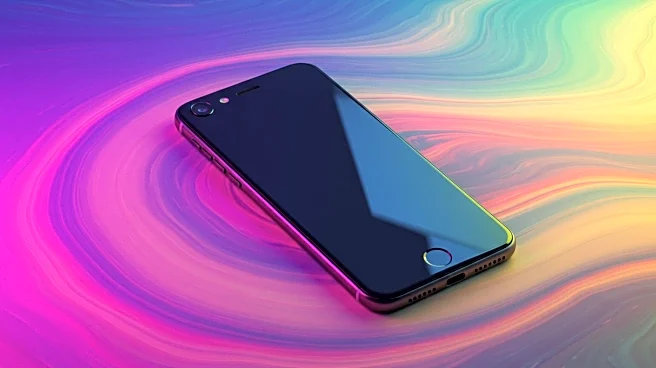What's Happening?
Brands across various industries are increasingly adopting 'vibe culture' as a core component of their marketing strategies. This approach focuses on creating immersive and emotionally engaging experiences that resonate with consumers on a deeper level. Originating from social media platforms like Tumblr, Pinterest, and Instagram, vibe culture emphasizes mood and atmosphere over specific content details. Companies are crafting unique 'worlds' that evoke certain feelings, such as fictitious hotels or nostalgic settings, to tell their brand stories. This trend is exemplified by The Rochambeau Club, a fictional tennis club used to promote a wine brand, which successfully blends humor and storytelling to build a loyal community. The strategy involves creating a distinct brand universe that encourages consumer participation and emotional connection.
Why It's Important?
The adoption of vibe culture by brands signifies a shift in marketing strategies towards more emotionally intelligent and experience-driven approaches. This trend allows brands to differentiate themselves in a crowded market by offering unique and memorable experiences that go beyond traditional advertising. By focusing on creating emotional connections, brands can foster long-term loyalty and engagement with their audiences. This approach also leverages the power of storytelling and nostalgia, appealing to consumers' desires for escapism and connection. As brands continue to explore this strategy, it could lead to more innovative and immersive marketing campaigns that redefine consumer-brand interactions.
What's Next?
As vibe culture continues to gain traction, more brands are likely to experiment with creating their own unique 'worlds' to engage consumers. This could lead to increased collaboration between brands and creative industries, such as film, music, and art, to develop richer and more diverse storytelling experiences. Additionally, brands may invest in new technologies and platforms to enhance these experiences, such as virtual reality or augmented reality, providing consumers with even more immersive interactions. The success of these strategies will depend on brands' ability to maintain authenticity and consistency in their storytelling, ensuring that their 'vibes' resonate with their target audiences.
Beyond the Headlines
The rise of vibe culture in marketing also raises questions about the ethical implications of creating fictional narratives and worlds. Brands must navigate the fine line between storytelling and manipulation, ensuring that their campaigns are transparent and do not mislead consumers. Additionally, as brands create more immersive experiences, they must consider the potential impact on consumer privacy and data security, particularly when using advanced technologies. The long-term success of vibe culture will depend on brands' ability to balance creativity with ethical considerations, fostering trust and authenticity in their consumer relationships.









